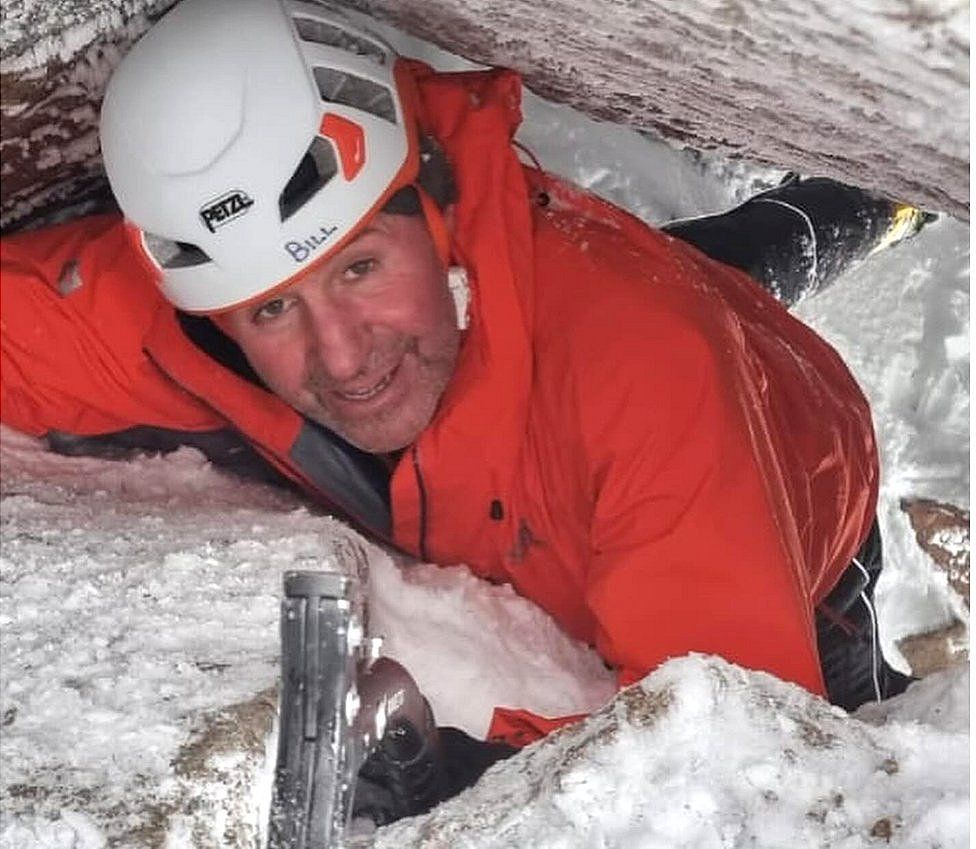Scotland's weather: 'We're the last hope on the hillside'
- Published

Being the last hope for a climber in trouble on a mountain is already a tough job.
Add in unpredictable and severe weather events and it is clear how dangerous it is for those who risk their lives to save those in trouble.
Scotland's mountain rescue teams have had a busier winter than usual. They were called out 120 times between 1 December and 20 March - a 6% increase on last year.
'More than a third of these jobs were the result of broken bones or fractures and the Police Scotland and mountain rescue teams were part of eight rescues which involved a death.
A new BBC Scotland programme, Scotland's Weather - Our Changing Seasons, explores the impact of the weather on these incidents.
The 2023/24 winter saw unusually unsettled weather on Scotland's mountains, with 10 named storms bringing wind and rain and low pressure systems bringing colder temperatures and snow.
In January, police issued a warning to climbers after two avalanches, medical deaths, and "very challenging" rescues.
There are more than 850 mountain rescue volunteers working across Scotland. Most of them have full-time jobs elsewhere. They train and rescue in their own time.
Simon Murray is lead medic with Braemar Mountain Rescue Team.
He told the programme: "You're someone's last hope on the hillside. We come together for a common good, to rescue someone who's having the worst day of their life."
Mr Murray spoke of a man who was lost earlier this year on Ben Macdui, Scotland's second highest mountain.
"We had the Braemar team deploying from the south and the Cairngorm team coming in from the north. When we found him, the patient was suffering hypothermia.
"He was starting to take his clothes off which is what they do when they're going through the stages of hypothermia. They don't know if they're either hot or cold so they start de-robing themselves.
"Another few hours and things would've got a lot worse for that individual."
There are different reasons why people need rescued.
Sometimes they have not checked the weather properly, have not sufficiently prepared, or the conditions on the hills are much worse than they expected.
Bill Dallas, another volunteer with Braemar Mountain Rescue, said the weather could sometimes make rescue attempts take a lot longer than normal.
"Last year we had some climbers stuck on a cliff face," he said.
"When we got there it was thick mist. We were in the cloud and we couldn't actually see them.
"We were shouting and their voices were just echoing around the crag."
By the time they were located, it was going to be such a difficult rescue that the team decided to wait until daylight.
"They were safe, they weren't going anywhere. At that point we just had to huddle down and wait until it got a little bit lighter to get our ropes out and start to bring them up.
"It all worked out well and was safer than trying and do it in the dark where we didn't totally understand where they were."
He added that the margin for error was reduced because winter days are short. It gets light late and dark early.
Mr Dallas said: "It's a colder time and the winds can be stronger. You're not going to die from a broken ankle but you can very quickly die if the winds are up at fifty mile an hour and the temperature is zero degrees."
Condition on the plateau in the Cairngorms can be tricky for climbers and the mountain rescue volunteers.
Mr Dallas said some of the worst tragedies had been caused by people who underestimated what the top of the plateau could be like in a full-on winter blizzard.
"Because it's so high, it's really exposed to the winds. There's nothing really stopping those winds, to slow it down at all.
"The conditions up there can be absolutely life-threatening," he said.
Mr Murray called it "a real privilege" to work in mountain rescue - despite the danger.
"We can project ourselves forward using all the skills of the team together and get to someone when they need us.
"It's so rewarding for us. Each time we save someone, we have the ability to give them their life back."
Scotland's Weather: Our Changing Seasons is on the BBC Scotland Channel at 20:00 on Thursday and also on BBC iPlayer